Siamese/Tabby is originated from United Kingdom but Torby is originated from United States. Both Siamese/Tabby and Torby are having almost same weight. Both Siamese/Tabby and Torby has almost same life span. Both Siamese/Tabby and Torby has same litter size. Siamese/Tabby requires Low Maintenance. But Torby requires Moderate Maintenance
Basic Information
undefined
United Kingdom
United States
Life Span:
15 - 20 Years
10 - 18 Years
Colors Available:
lilac, apricot, Many different colors – blue, seal and chocolate.
Patches of red, cream, grey
Coat:
short and silky
Short- or long haired
Temperament:
Affectionate, Alert, Cheerful, Curious, Energetic, Friendly, Gentle, Independent, Intelligent, Lively, Loving, Loyal, Outgoing, Playful, Responsive, Social, Sweet, Territorial
Affectionate, Alert, Cheerful, Curious, Energetic, Friendly, Gentle, Independent, Intelligent, Lively, Loving, Loyal, Outgoing, Playful, Quiet, Responsive, Social, Stubborn, Sweet, Territorial
Grooming:
Low Maintenance
Moderate Maintenance
New Owners Friendly:
Yes
Yes
History
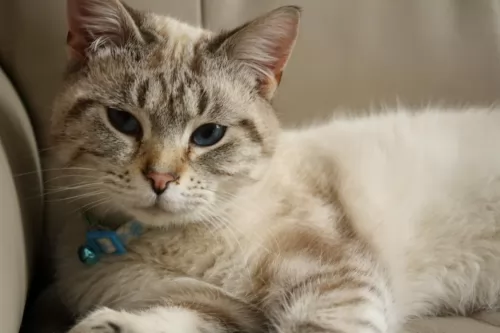 Lynx point Siamese cats are believed to also be known as Tabby point Siamese in the UK. Breeding of these cats began in about the 1940s and the first kitten born was crossed with a purebred Seal Point cat. That was the start of the seal tabby point Siamese cat.
Lynx point Siamese cats are believed to also be known as Tabby point Siamese in the UK. Breeding of these cats began in about the 1940s and the first kitten born was crossed with a purebred Seal Point cat. That was the start of the seal tabby point Siamese cat.
After the first kitten was born, many people were intrigued with it and it got plenty of attention, and breeders knew that to please cat lovers everywhere they would have to start producing these wonderful tabby Siamese points.
The Torby is a rare cat and the name ‘Torbie’ is shortened for Tortoiseshell-tabby. They are known for their tri-colored coats. In fact, when a cat has tabby stripes along with Tortoiseshell markings, the results are Torbie.
Tortoiseshell cats are almost exclusively female. Males do exist but they are rare. They’re also referred to as Torties with their coat resembling that of the shell of a tortoise.
The colors represented are usually red, orange and black.
Just like the Tabby cat, the Tortie cat is not actually a breed, but is rather referring to the coat pattern. Pure breed cats such as the Maine Coon can also have a Tortoiseshell pattern.
Description
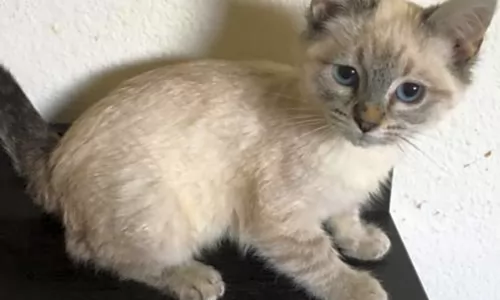 The Tabby pointed Siamese cat is medium-sized and can weigh between 3 and 5kg. He has some stripes, mostly around the legs, and the tail is also striped. These cats are available in many different colors – blue, lilac, apricot, seal, and chocolate. The ears are triangular-shaped and there is an ‘M’ shaped mark on the forehead of the cat. All these markings make the cat most distinctive.
The Tabby pointed Siamese cat is medium-sized and can weigh between 3 and 5kg. He has some stripes, mostly around the legs, and the tail is also striped. These cats are available in many different colors – blue, lilac, apricot, seal, and chocolate. The ears are triangular-shaped and there is an ‘M’ shaped mark on the forehead of the cat. All these markings make the cat most distinctive.
Temperament:
The Siamese and Siamese Tabby cats share many similarities in character. They are social cats, loving the interaction with their human families. They’re loyal, intelligent cats and they love to play.
They can live to be about 15 to 20 years of age and throughout this time they will provide you with love, companionship, entertainment, and joy.
In fact, they thrive so much on your company, that they can easily become lonely and run-down when left alone for too long.
There is a type of tortie cat that is called a torbie and it comes with tabby-like features. They are striking looking cats and can be medium to large size, weigh between 3 and 7kg and be muscular and athletic.
Essentially when there are tabby stripes you get a Torbie. Some people call them patched tabbies because they are a tabby with
Temperament:
No two Tortoiseshell cats have the same personalities, and because they can be any breed of cat, they have a wide range of personality characteristics.
They can be energetic, docile, curious, lazy, playful, shy, reserved, aloof, social, friendly, angry, calm, or something else. Not every Torbie cat will have the same characteristics, but most make the most awesome pets.
It is true that a cat’s personality and behavior are formed a lot by the people who own it and the lifestyle they provide for it.
Characteristics
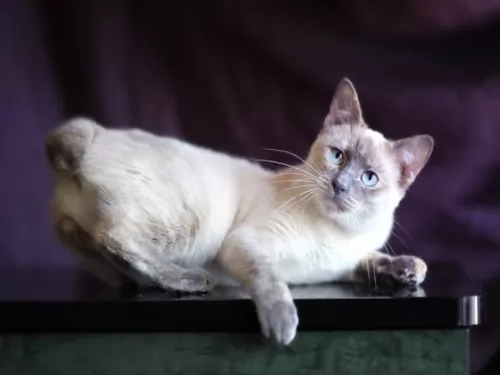 These cats are people-loving cats – they just crave the companionship of their human family although they’re not particularly fond of strangers.
These cats are people-loving cats – they just crave the companionship of their human family although they’re not particularly fond of strangers.
They make wonderful pets as they actually want to be involved in everything that theur human owners are busy with. They truly are companionable.
They’re intelligent and playful and he will even love to go on a walk with you but then it is best to have him on a leash. Bring one of these awesome cats into your home and you’re guaranteed to have a friend for life.
Your torbie cat isn't going to turn out the same way as your friend's torbie cat. This is because torbie is just indicating the type of coat your cat has. Yes, they can be strong-willed, social and even angry sometimes, but they can also be quiet, sweet and content. Nothing is set in stone when it comes to a cat's personality.
The type of personality you have and the lifestyle you provide your cat with can play a big part in how your Torby turns out. Give him lots of love and care and you'll be blessed with an awesome friend and pet.
Health Problems
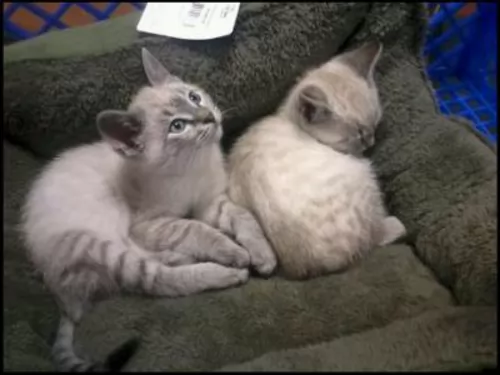 When you look at your cat, you want to see that his eyes are bright and clear, his fur is shiny, he is of a good weight and that he is energetic and content. Not looking like this could indicate health problems for your feline friend. He will need to get to the vet for his vaccines and the vet will check him over to so as to make sure he is in tip-top health.
When you look at your cat, you want to see that his eyes are bright and clear, his fur is shiny, he is of a good weight and that he is energetic and content. Not looking like this could indicate health problems for your feline friend. He will need to get to the vet for his vaccines and the vet will check him over to so as to make sure he is in tip-top health.
Make sure to check him over for parasites and these can cause diarrhea as can other issues such as bacteria, viruses, and the wrong food.
Frequent vomiting is also not normal as well as straining to urinate. These are all instances when you want to get your pet to the vet as soon as possible.
Torbie cats are such lovable felines and because they are describing the type of coat the coat has and not the breed, nobody can be sure how long these cats will live for.
Some will only live to be 10 while others can reach 15 to 18 years of age. The diet and lifestyle you give your torbie can influence his health and longevity.
Health issues in a torbie are certainly not connected to the color of the coat. No matter what cat breed you have, most of the common cat illnesses to watch for are issues that affect the kidneys, the eyes, the skin, and heart.
Make sure you get your torbie vaccinated against some of the deadly cat diseases there are.
Caring The Pet
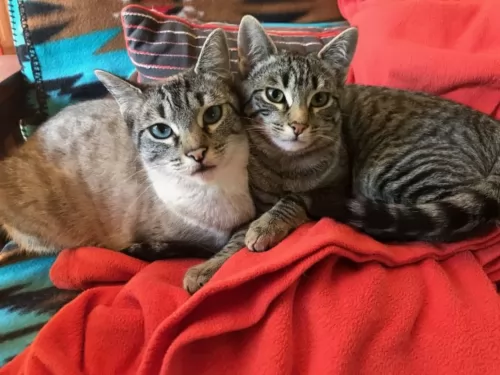 Before you commit to bringing a Siamese/Tabby into your home you must have everything ready for him.
Before you commit to bringing a Siamese/Tabby into your home you must have everything ready for him.
He will need food and water bowls, commercial cat food, grooming brush, a soft warm bed, collar and tag, litter box, a carrying container to get him to the vet safely, climbing tree, and scratching post.
The fine, silky coat doesn’t shed much and can easily be maintained with a weekly brush.
You will need to trim your cat’s paws. Trimming the claws can be difficult with a squirming cat and you can easily hurt him because of that. Rather get him to the vet who will do it for you.
Make sure to feed your Siamese/Tabby the very best cat food there is as poor quality food can contribute to poor health.
A cat is a carnivore and you therefore have to ensure that his food is made up essentially of meat. The commercial cat foods of today are formulated as dry, semi-moist, and canned and they offer a wonderfully convenient way for you to feed your cat. When you choose the best ones, they are palatable and digestible for your cat.
You just have to remember that your cat’s nutritional requirements change with his different stages of life. A kitten can’t possibly eat the same food as an adult cat. The nutritional claim on the cat food label will be a guide for you as to what your cat should be eating. Always ensure a constant supply of fresh, cool water.
It can be difficult to decide which food to go with for your feline friend as the cat food manufacturers have provided pet lovers with a generous selection.
With a cat, it may be tempting to choose the cheapest option, but in the long run, it will just increase your vet bills. Diet plays a massive role in the health of your cat. The important thing to remember is that your cat is a carnivore and he will require meat as the biggest part of his diet. If in doubt, speak to your vet about the type of food to give your cat and how much.
Ensure your cat has a constant supply of fresh, cool water.
All cats are low-maintenance, and your Torby isn’t going to require much grooming. Make a habit of regular grooming, even if it is only once a week. Your Torby will also need his claws trimmed regularly. You can visit your vet or pet groomer to do this for you.
Just like human parents prepare for the arrival of a new baby, you have to prepare for the arrival of a cat in the home, whether it comes to you as a kitten or an adult.
Make a list of the essential cat accessories you will need.
Buy some fun toys for your Torby, more so if you are bringing a kitten home. Cats need to be stimulated to steer away from boredom.
Essentially your Torby checklist will look like this -
• Litter box and cat litter
• Cat bedding
• Veterinarian-recommended cat food
• Bowls for food and water
• Toys
• Collar with tag and contact info etched in
• Brush for grooming
• Scratching post
• Climbing tree
Comparison with other breeds
- Torby vs Abyssinian - Breed Comparison
- Torby vs Aegean - Breed Comparison
- Torby vs African Serval - Breed Comparison
- Torby vs Chausie - Breed Comparison
- Torby vs American Bobtail - Breed Comparison
- Torby vs American Curl - Breed Comparison
- Torby vs American Keuda - Breed Comparison
- Torby vs American Longhair - Breed Comparison
- Torby vs American Polydactyl - Breed Comparison
- Torby vs American Shorthair - Breed Comparison
- Torby vs American Wirehair - Breed Comparison
- Torby vs Applehead Siamese - Breed Comparison
- Torby vs Ashera - Breed Comparison
- Torby vs Asian - Breed Comparison
- Torby vs Asian Semi-Longhair - Breed Comparison
- Torby vs Australian Mist - Breed Comparison
- Torby vs Balinese - Breed Comparison
- Torby vs Bengal - Breed Comparison
- Torby vs Bicolor - Breed Comparison
- Torby vs Birman - Breed Comparison
- Torby vs Blue Russian - Breed Comparison
- Torby vs Bombay - Breed Comparison
- Torby vs Brazilian Shorthair - Breed Comparison
- Torby vs Bristol - Breed Comparison
- Torby vs British Longhair - Breed Comparison
- Siamese/Tabby vs Abyssinian - Breed Comparison
- Siamese/Tabby vs Aegean - Breed Comparison
- Siamese/Tabby vs African Serval - Breed Comparison
- Siamese/Tabby vs Chausie - Breed Comparison
- Siamese/Tabby vs American Bobtail - Breed Comparison
- Siamese/Tabby vs American Curl - Breed Comparison
- Siamese/Tabby vs American Keuda - Breed Comparison
- Siamese/Tabby vs American Longhair - Breed Comparison
- Siamese/Tabby vs American Polydactyl - Breed Comparison
- Siamese/Tabby vs American Shorthair - Breed Comparison
- Siamese/Tabby vs American Wirehair - Breed Comparison
- Siamese/Tabby vs Applehead Siamese - Breed Comparison
- Siamese/Tabby vs Ashera - Breed Comparison
- Siamese/Tabby vs Asian - Breed Comparison
- Siamese/Tabby vs Asian Semi-Longhair - Breed Comparison
- Siamese/Tabby vs Australian Mist - Breed Comparison
- Siamese/Tabby vs Balinese - Breed Comparison
- Siamese/Tabby vs Bengal - Breed Comparison
- Siamese/Tabby vs Bicolor - Breed Comparison
- Siamese/Tabby vs Birman - Breed Comparison
- Siamese/Tabby vs Blue Russian - Breed Comparison
- Siamese/Tabby vs Bombay - Breed Comparison
- Siamese/Tabby vs Brazilian Shorthair - Breed Comparison
- Siamese/Tabby vs Bristol - Breed Comparison
- Siamese/Tabby vs British Longhair - Breed Comparison
 Petzlover
Petzlover Lynx point Siamese cats are believed to also be known as Tabby point Siamese in the UK. Breeding of these cats began in about the 1940s and the first kitten born was crossed with a purebred Seal Point cat. That was the start of the seal tabby point Siamese cat.
Lynx point Siamese cats are believed to also be known as Tabby point Siamese in the UK. Breeding of these cats began in about the 1940s and the first kitten born was crossed with a purebred Seal Point cat. That was the start of the seal tabby point Siamese cat. The Tabby pointed Siamese cat is medium-sized and can weigh between 3 and 5kg. He has some stripes, mostly around the legs, and the tail is also striped. These cats are available in many different colors – blue, lilac, apricot, seal, and chocolate. The ears are triangular-shaped and there is an ‘M’ shaped mark on the forehead of the cat. All these markings make the cat most distinctive.
The Tabby pointed Siamese cat is medium-sized and can weigh between 3 and 5kg. He has some stripes, mostly around the legs, and the tail is also striped. These cats are available in many different colors – blue, lilac, apricot, seal, and chocolate. The ears are triangular-shaped and there is an ‘M’ shaped mark on the forehead of the cat. All these markings make the cat most distinctive. These cats are people-loving cats – they just crave the companionship of their human family although they’re not particularly fond of strangers.
These cats are people-loving cats – they just crave the companionship of their human family although they’re not particularly fond of strangers. When you look at your cat, you want to see that his eyes are bright and clear, his fur is shiny, he is of a good weight and that he is energetic and content. Not looking like this could indicate health problems for your feline friend. He will need to get to the vet for his vaccines and the vet will check him over to so as to make sure he is in tip-top health.
When you look at your cat, you want to see that his eyes are bright and clear, his fur is shiny, he is of a good weight and that he is energetic and content. Not looking like this could indicate health problems for your feline friend. He will need to get to the vet for his vaccines and the vet will check him over to so as to make sure he is in tip-top health. Before you commit to bringing a Siamese/Tabby into your home you must have everything ready for him.
Before you commit to bringing a Siamese/Tabby into your home you must have everything ready for him.